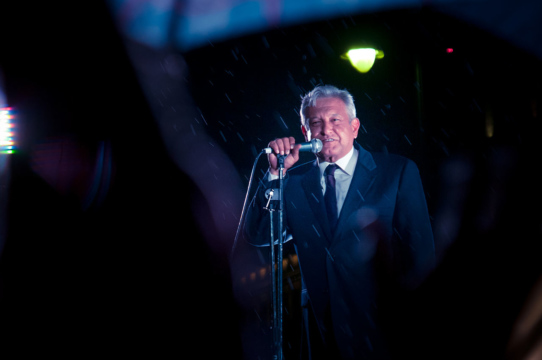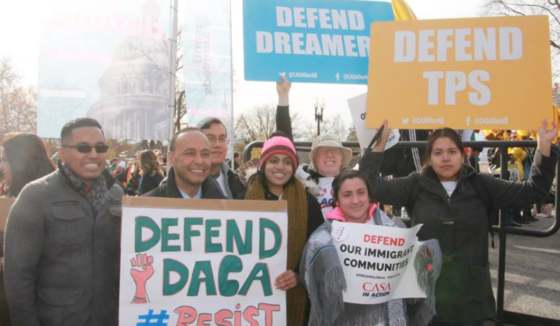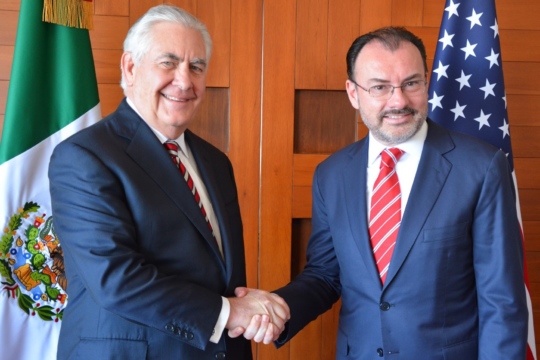
Thinking Strategically about China and the U.S. in Latin America
Fear mongering about China’s intentions in Latin America is misguided. The Chinese government is focused on better economic ties and development cooperation.
Fear mongering about China’s intentions in Latin America is misguided. The Chinese government is focused on better economic ties and development cooperation.
Con cada acto autoritario, el chavismo pierde más de la poca legitimidad que le queda ante su propio pueblo y la comunidad internacional. La MUD no debería hacerle las cosas más sencillas. La respuesta al dilema opositor pasa por comprender cuál es la estrategia que debilita más al gobierno y da más chances de que ocurra una transición a la democracia tarde o temprano.
Michael Camilleri afirma que la posibilidad de una intervención armada en Venezuela luce lejana, por lo que el cambio debe llegar por la acción de los venezolanos, pero con apoyo diplomático internacional.
Negotiators from 11 countries on Jan. 23 reached an agreement on the Trans-Pacific Partnership, or TPP, trade deal. Which of the Western Hemisphere countries have the most to gain from the agreement?
Sending back 200,000 Salvadorans to an already strained region flies in the face of the objectives of the Alliance for Prosperity, and is a surefire way to worsen the social ills that lie at the root of the massive exodus to the United States. A chaotic Central America is a story with no winners except criminal syndicates.
If the region increases renewables to 80% of the electricity matrix and expands integration, countries can save billions of dollars in investments, avoid blackouts and reduce their greenhouse gas emissions, argue Lisa Viscidi and Ariel Yépez.
On January 30, the Inter-American Dialogue and International Monetary Fund (IMF) hosted an event to discuss the findings of a recently published book, Unleashing Growth and Strengthening Resilience in the Caribbean (November 2017). This event was moderated by Manuel Orozco with panelists Joyce Wong, Sebastian Acevedo and Daniel P. Erikson. The panel discussed the roles that structural transformation, natural disasters, and fiscal policy have on unleashing future growth in the region.
This year’s “electoral supercycle” could ignite a race to succeed Washington and Caracas as the hemisphere’s big players.
On January 25, 2018 the Inter-American Dialogue’s Migration, Remittances & Development Program hosted “Remittances to Latin America and the Caribbean in 2017,” an annual event presenting remittance flows to the region.
Remittances to Latin America and the Caribbean grew over 8% in 2017, according to new research by the Inter-American Dialogue.
On January 22, the Dialogue held an open discussion on how the various stakeholders in the VIII Summit of the Americas could unite around common anticorruption goals.
Ecuador’s President Lenin Moreno has maneuvered to break with his predecessor, Rafael Correa, and a legacy tinged with authoritarianism and corruption.
This week, Latin America will convene in Chile for the Second China-CELAC Ministerial Forum. Margaret Myers, Director of the Dialogue’s Latin America and the World Program, speaks to CGTN on what to expect from the meeting.
In these interviews with Joachim Bamrud for Latinvex, Michael Shifter discusses the political outlook for Mexico, Brazil and Colombia, three countries in which upcoming 2018 presidential elections are still very uncertain.
The U.S. Department of Homeland Security on Jan. 9 announced that it would not renew Temporary Protected Status for nearly 200,000 Salvadorans who have been allowed to stay in the United States since at least 2001, arguing that the conditions that caused Salvadorans to seek residency in the United States no longer exist. How many Salvadorans are expected to return home, and what steps can the government and civil society organizations take to accommodate an influx of nationals back inside its borders?
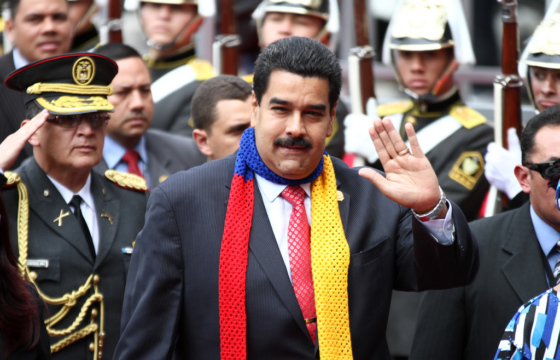
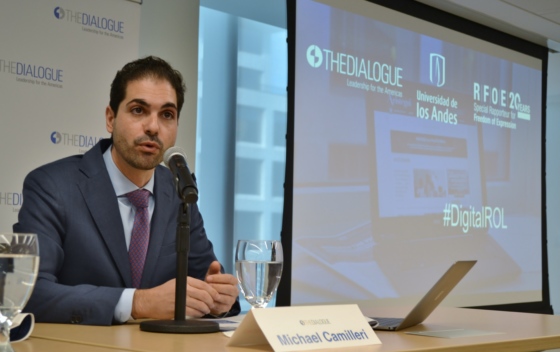

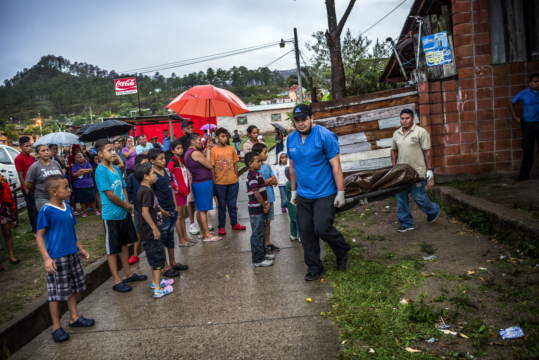
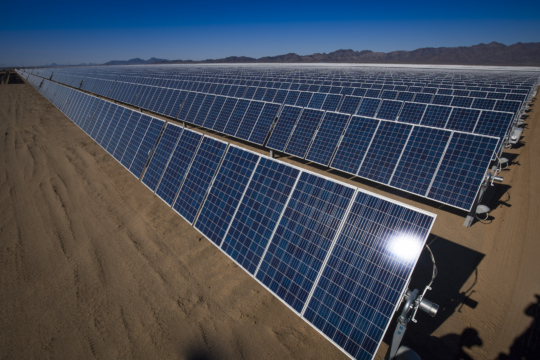
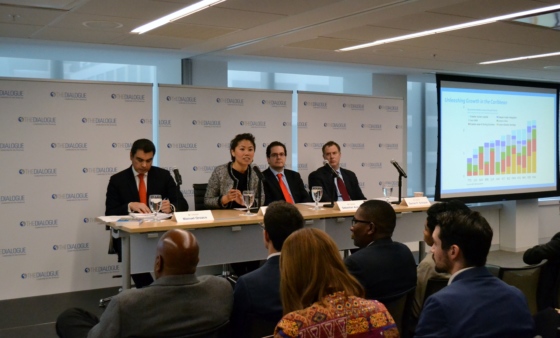 Video
Video

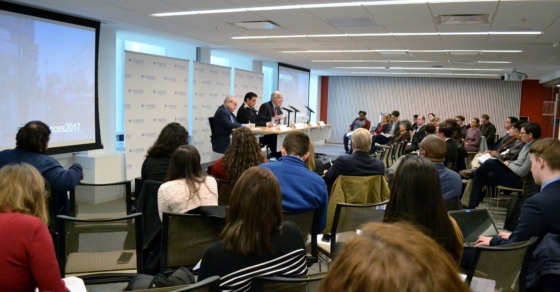 Video
Video
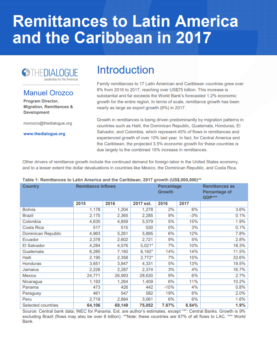
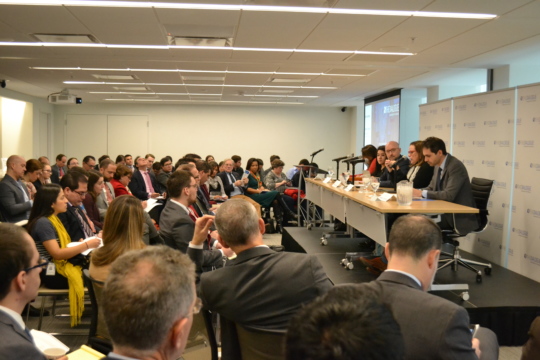 Video
Video
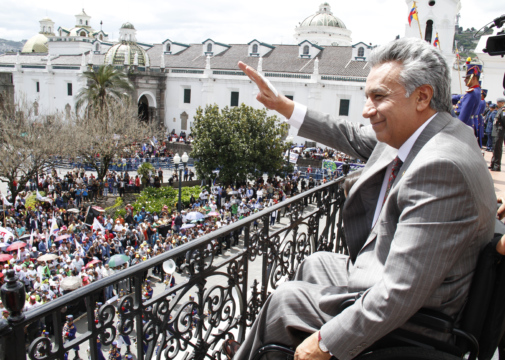
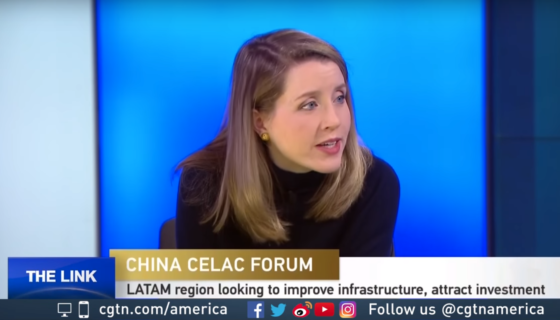 Video
Video
